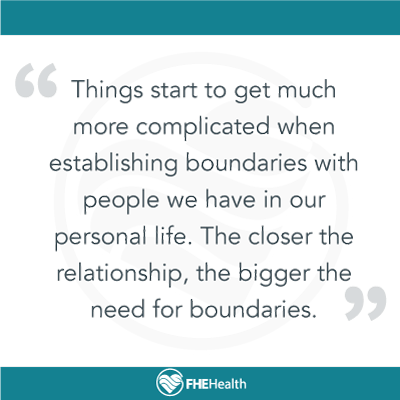
Entering recovery is so much more than just abstaining from drugs and alcohol. The people who truly excel in recovery treat it like a way of life. The 12-steps are a way of life, not a school you complete and graduate from.
One of the most accurate facts I have to remind myself almost daily is that I am powerless over 99.99% of the world. Of course, the only thing I have the power to do (with a higher power) is change my perspective and behaviors on things that I feel are wrong.
The most significant example that everyone can relate to is dealing with people who either treat us bad or wish we would change for whatever reason (usually a self-serving one).
What is the most desired thing in recovery? It’s a subjective question, but it is peace of mind to me. I want my mind to be calm and relaxed, and anything that disrupts it, I want to follow the path that brings my mind back to peace.
Nothing can disrupt the peace of mind like a person wronging or mistreating us. The most complicated situations are with temperamental people in your life, which means that sometimes they are in a great mood, sometimes in a terrible mood. You never know what you are going to get.
This can be a friend, significant other, a family member, or co-worker. Many of us have that moody person in our lives; you need to walk on eggshells around them because you aren’t sure what will set them off.
A situation like that can destroy one’s peace of mind in recovery.
What needs to be acknowledged here is what I mentioned just before, you cannot change who they are, also that it shouldn’t be taken personally when they lash out at you. They may do this to everyone; that’s something I have found true for just about everyone who has ever wronged me.
Changing the perspective on a relationship is good work to do with a sponsor. There is also one more crucial step you can take to solve this problem as best as possible: establishing boundaries.
What Is A Boundary?
 To put it simply, a boundary is a limit or expectation placed between two people. There are many unspoken but known boundaries in our society. You wouldn’t hug a stranger; that would be crossing a significant boundary. You also wouldn’t curse out your boss; that’s a considerable fat boundary violation.
To put it simply, a boundary is a limit or expectation placed between two people. There are many unspoken but known boundaries in our society. You wouldn’t hug a stranger; that would be crossing a significant boundary. You also wouldn’t curse out your boss; that’s a considerable fat boundary violation.
Those are simple, inherently known boundaries. Things start to get much more complicated when establishing boundaries with people we have in our personal life. The closer the relationship, the bigger the need for boundaries.
It’s a simple concept, but there are so many factors that can make standing your ground and advocating for specific rules or expectations that complicate things big time.
If the main factor that complicates the issue is that the person has a nasty temper, it’s pretty clear why there could be a lot of fear in communicating to that person about the boundaries you would like to set.
Let’s go over some fundamental principles to remember when planning to establish boundaries with whomever that temperamental person may be.
This Is All About YOU
When beginning this process, the first thing to do is to get a pen and paper and write down your core principles. We all have a moral compass and what we believe is right and wrong when it comes to behaviors or treating someone.
When doing this, make sure the only person considered is you, not the person you are trying to set things straight with. It may be a habit to consider their feelings and beliefs, but that is not what’s important right now. This process is about empowering yourself and advocating for yourself.
After writing out your values, it should become easy to list the specific lines you want to draw between yourself and this person.
Some other vital things to keep in mind:
 Stay calm and concise while communicating your boundaries – This is a big one; delivery is critical when speaking with this person about the new boundaries you would like to set. Staying calm and keeping it simple can help the point get across. Adding extra words in a simple statement to show them how wrong it is that they are treating you poorly will not resolve anything.
Stay calm and concise while communicating your boundaries – This is a big one; delivery is critical when speaking with this person about the new boundaries you would like to set. Staying calm and keeping it simple can help the point get across. Adding extra words in a simple statement to show them how wrong it is that they are treating you poorly will not resolve anything.
Make it all about you: This is not about telling them what they need to change; remember, we cannot change anything but ourselves and our perspective. Keep the conversation on your needs and your values. No pointing fingers. No matter how tempting it is. You are the bigger person.
Don’t try to ‘win’ the conversation – The last thing you want the conversation to turn into is a debate or argument. It’s OK to slip in that it’s possible you are wrong about a thing or two and misunderstood, but that is a slippery slope. It is OK if you don’t feel comfortable mentioning that; only you know the person you are establishing this with.
Sticking To It
Once you have that difficult conversation, you have only just begun. What follows is living up to your word. It’s very challenging; I’m sure I don’t need to tell you that. Each situation is different but do what you can to minimize much interaction initially.
Those initial conversations on establishing your boundaries that are not to be crossed can be challenging. There also can’t be an expectation that the limits will be respected right away. The problematic person may try to test you or may unknowingly cross the line quickly.
Make sure to have others plugged into the situation; a general rule of life is always to have at least one person who knows what’s going on in life. Someone we can trust and say anything; every human being needs that.
Do whatever you need to every day to remind yourself of your core values and what you believe in. Remind yourself that you love yourself and won’t tolerate being treated poorly.
This very process that will start highly uncomfortable can be something that truly turns you into the strongest person you have ever been.






